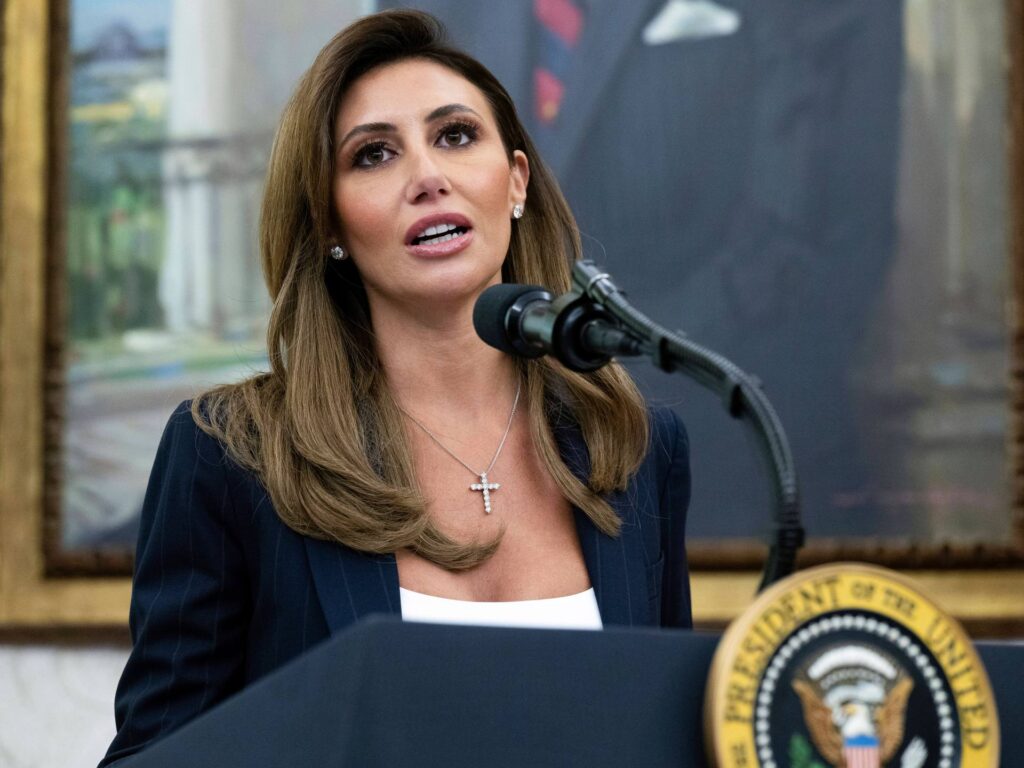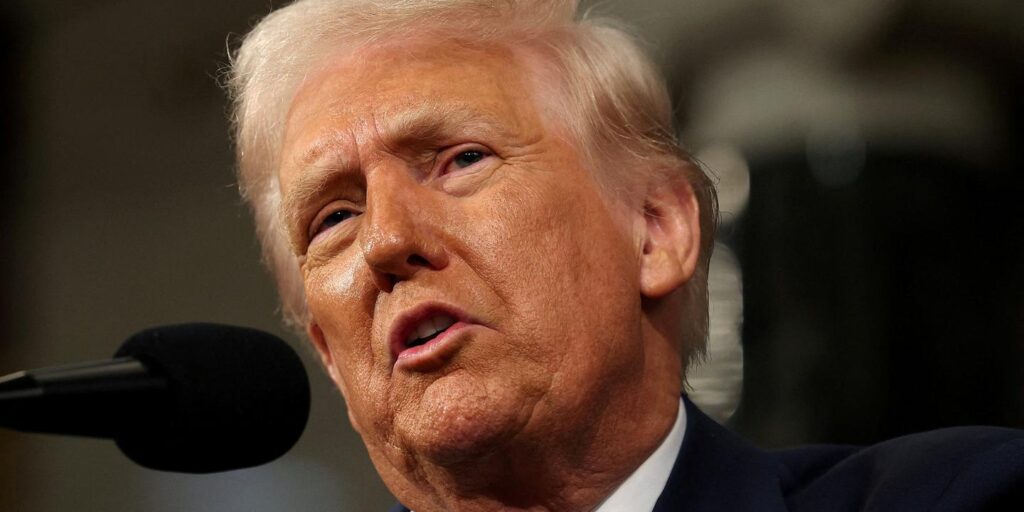A panel of federal judges have declined to extend Alina Habba’s term as a United States attorney for the district of New Jersey beyond the interim period of 120 days.
Tuesday’s court order, signed by the chief judge for the District of New Jersey, Renee Marie Bumb, brings Habba’s brief tenure to an end for now.
The judges instead elevated Desiree Grace, Habba’s deputy at the US Attorney’s Office in New Jersey, to serve as the bureau’s top federal prosecutor.
But the administration of President Donald Trump quickly denounced the judges’ decision as political activism and fired Grace from the role before she could even take up the post.
“(Alina Habba) has been doing a great job in making NJ safe again. Nonetheless, politically minded judges refused to allow her to continue in her position, replacing Alina with the First Assistant,” Attorney General Pam Bondi wrote on social media.
“Accordingly, the First Assistant United States Attorney in New Jersey has just been removed. This Department of Justice does not tolerate rogue judges.”
Habba’s time as interim US attorney has sparked controversy as yet another example of Trump picking close personal contacts to serve in government roles.
Habba herself has also been accused of carrying out politically motivated prosecutions while acting as the US lawyer.
During her four-month tenure, she pursued cases against several Democratic lawmakers, including Newark Mayor Ras Baraka and US Representative LaMonica McIver.
Both prosecutions stemmed from an effort by lawmakers to visit and inspect an immigrant detention facility in New Jersey. Trump has made mass deportation a central pillar of his second term, and that, in turn, has stirred fears about the safety and rights of those held in the detention facilities.
Controversial cases
In the case of Baraka and McIver, the incident in question took place on May 9 at the Delaney Hall detention centre outside of Newark.
Baraka, at the time a gubernatorial candidate for the Democratic Party, had repeatedly protested the newly opened facility for allegedly lacking the proper local permits.
According to Baraka’s defence team, he was invited inside the Delaney Hall gate along with members of the US Congress, who have a right to inspect federal facilities as part of their oversight duties.
But he was asked to leave, and once he was outside the gate, he was handcuffed and led away. Habba later announced he had been charged with trespassing.
Within 10 days, however, Habba walked back those charges “after extensive consideration”.
In a court hearing to dismiss the case, US Magistrate Judge Andre Espinosa chided a representative from Habba’s office for making a “worrisome misstep”.
Espinosa told prosecutors that arresting a public figure should not be used as an “investigative tool” and warned that criminal charges carry “significant reputational and personal consequences”.
Still, at the same time as she dropped the case against Baraka, Habba launched a case against Representative McIver, who had sought to defend the Newark mayor as he was being arrested.
Habba sued McIver for physical assault after she allegedly pushed into a federal agent in the tightly packed crowd outside Delaney Hall.
McIver has denied the charge and accused Habba of attempting to “intimidate” her. Baraka, meanwhile, sued Habba over “malicious prosecution”.
Habba has also launched investigations into Democratic Governor Phil Murphy and Attorney General Matt Platkin over resistance to working more closely with the Trump administration on immigration enforcement.
Ties to Trump
Before joining the Trump administration as an interim US attorney, Habba served as the president’s personal lawyer.
She represented him in several civil cases before he returned to the White House in January. In one case, Habba represented Trump in a defamation suit brought by Summer Zervos, a former contestant on his reality television show The Apprentice.
After Habba threatened a countersuit, Zervos dropped her defamation complaint.
But she also was part of two high-profile cases that Trump lost: a civil fraud case brought by New York Attorney General Letitia James and a defamation suit brought by writer E Jean Carroll. Trump has appealed both.
In March, shortly after taking office for a second term, Trump appointed Habba to serve in the Department of Justice as a US attorney, the chief law enforcement officer in a given district.
But her position was on an interim basis, capped at 120 days. Continuing in the position beyond the interim period required the approval of a judicial panel.
Still, Trump has signalled that he had hopes to keep Habba in her position. Earlier this month, he submitted a formal nomination to the US Senate for Habba to remain a US attorney.
But that nomination faces opposition from New Jersey Senators Cory Booker and Andy Kim, who question whether Habba is qualified.
Habba had not worked as a prosecutor until Trump appointed her to the role, and the Senate has yet to act on her nomination.
Several of Trump’s other nominees to the Department of Justice have faced similar pushback.
Last week, a US District Court for the Northern District of New York declined to keep interim US attorney John Sarcone in place after his 120-day term neared its end.
Nevertheless, members of the Trump administration were defiant in the face of the setbacks.
Deputy Attorney General Todd Blanche, another former personal lawyer to the president, accused the judges in New Jersey of having “forced out” Habba on political grounds.
“The district judges in NJ just proved this was never about law—it was about politics,” Blanche wrote on social media. “This backroom vote will not override the authority of the Chief Executive.”


